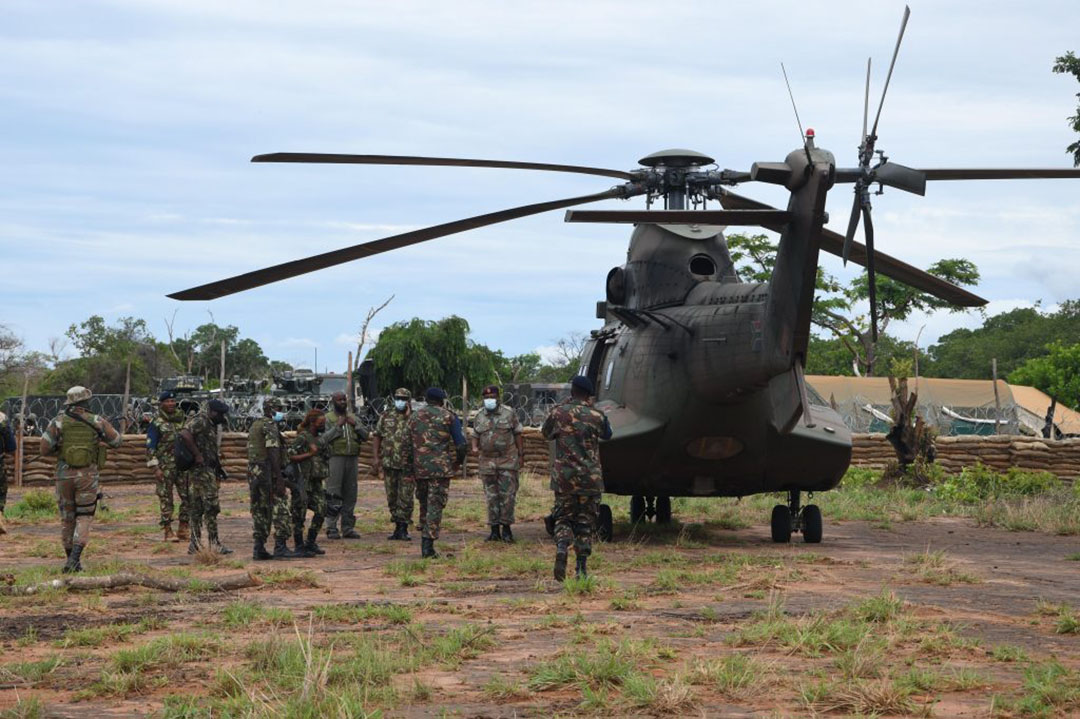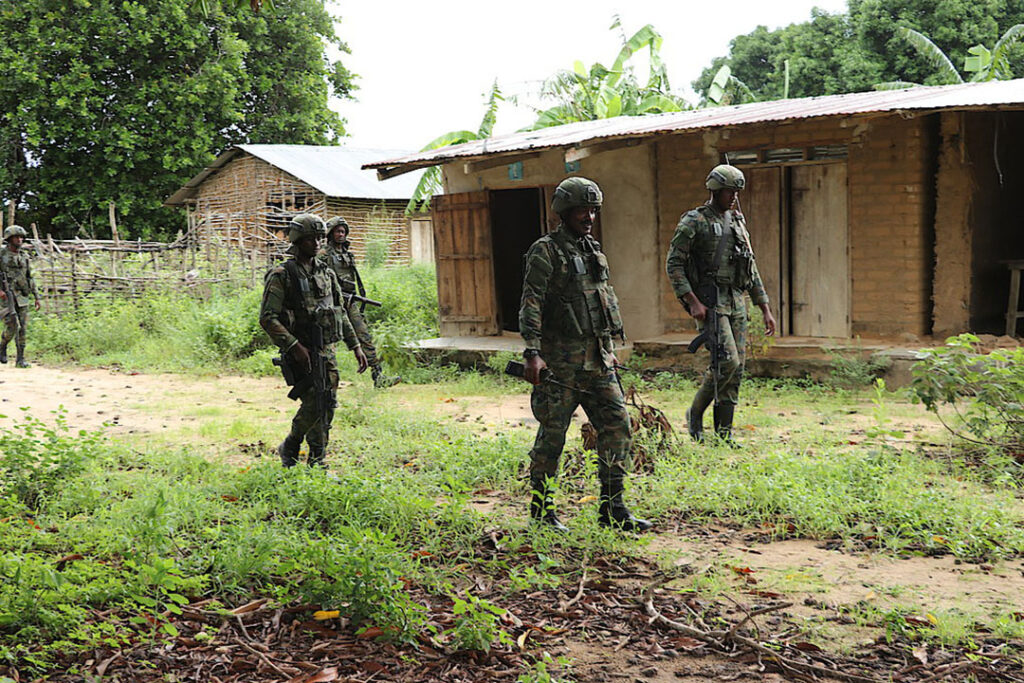ADF STAFF
The attackers came in six wooden canoes. One with a small motor towed the rest.
In the fading light of dusk, they reached Matemo Island just off the coast of northern Mozambique’s Cabo Delgado province.
The attackers killed at least two villagers, burned down dozens of homes, and looted shops for food and medicine throughout the night of February 1.
Well aware that the closest military position was about 10 kilometers south in the district capital, Ibo Island, they shouted at each other to “do it quickly before the pigs [the military] and their helpers arrive,” according to news website Moz24Horas.
One attacker left a message that read: “Don’t think that these pigs who are protecting you will help you. Not even those from SADC [Southern African Development Community] and Rwanda.”
The militants absconded in the morning before security forces appeared in helicopters above the island. On social media, an Islamic State group affiliate called the Islamic State Central Africa Province claimed credit for the attack.
Although there have been numerous reports of military success in the country, attacks such as this one show the insurgency that dates back to 2017 is far from over. Experts are warning that the terrorists are now adapting small-scale guerrilla tactics.

“The insurgency has not been beaten back,” security analyst Jasmine Opperman told Newzroom Afrika on February 5. “The momentum has not been broken. To the contrary, it is just getting worse.”
Counterinsurgency operations began in July 2021 when Mozambican Armed Forces (FADM) started conducting joint operations with Rwanda Security Forces, and SADC deployed its Standby Force Mission in Mozambique (SAMIM).
The three forces have reported a spate of successful high-profile missions — retaking cities and towns, overrunning bases, reestablishing a key trade route in the province and claiming to restore normalcy.
“Security forces operations are having an effect. The terrorists are weakened,” Mozambican Police General Commander Bernardino Rafael said on national radio on January 31, claiming that seven insurgent leaders were killed in December and January.
In recent weeks, Mozambican President Filipe Nyusi has traveled through Cabo Delgado with messages of stability and optimism. South African President Cyril Ramaphosa also visited the province and met with SAMIM troops with Nyusi at a military camp on February 3.
Despite the positive headlines and pronouncements, the counterinsurgency efforts continue to have issues with communication, collaboration and logistics.
The number of boots on the ground is not the problem, Opperman said, estimating SAMIM’s strength at 1,300 troops, including about 600 South African Soldiers.
“The problem lies in coordination and intelligence sharing,” she said. “Rwanda tends to be proactive, and they’re well trained. They have a very fixed area, which makes it easier for their roughly 2,500 Soldiers.
“For SAMIM, there’s a vast area to cover … in a highly difficult battlefield. The lack of intelligence means that they cannot be proactive, and they’re confined to the main access routes.”
As Rwandan forces have helped secure Mozambique’s natural gas reserves near the town of Palma on the Afungi Peninsula, terrorist activities have increased to the west of the coast.
Conflict observatory Cabo Ligado, which monitors and analyzes political violence in Cabo Delgado, has reported dozens of attacks in the Nangade and Mueda districts — a clear shift away from the Palma district. Terrorist activity also has risen to the west of Cabo Delgado in the Niassa province, where tens of thousands of vulnerable displaced people have sought refuge.
Efforts have been made to address the guerrilla tactics.
The three militaries established a Joint Operation Committee to organize collaborations and intelligence-sharing. The European Union’s training mission is working with FADM to create a quick-reaction force.
But the effects of these measures are unclear, and local reporting continues to highlight the disjointed and slow-moving nature of the overall counterinsurgency operation.
Opperman called it the ideal environment for terrorists to execute small attacks.
“That has been a concern from the beginning,” she said. “Militarization is necessary to create stability, but if you don’t have cooperation between the different forces, you have groups of Soldiers running in different directions.”


1 Comment
Thank you for the information. It looks like the war on terror will take a long time. What is the government plan on the residents of palma . Will they protect resident to return back and continue with normal life. They badly off in camps . Without working and permanent homes may bring other social economic problems.